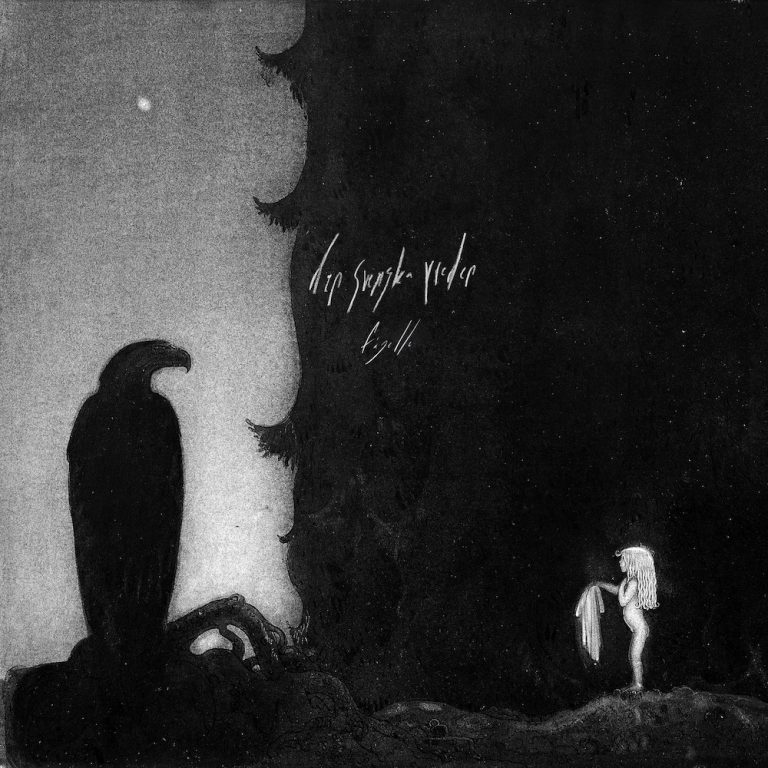The title of Fågelle‘s new album translates as ‘The Swedish rage’, yet the sonic tones on this wonderful record feel more like the aftermath of an event rather than the eye of the storm itself. Field recordings add an eerie atmosphere over the course of Den svenska vreden, while Klara Andersson’s sweet and tempered voice floats above sparse and fractured Nordic folktronica to create a body of work which feels more melancholic than imbued with rage. Andersson has spoken about how the record reflects “a subdued Swedishness that doesn’t hold space for flaring, tearing, wallowing rage but rather pushes it down from the surface and inwards.” In that light, Den svenska vreden is the perfect soundtrack for such an idealised notion of stoicism and supposed “self-control” in spite of the need for cathartic outpourings.
“Ingeting” is the first standout track on the record, a sumptuous slice of downbeat folk-pop that veers between melancholia and life-affirming post-rock sensibilities. Andersson’s sweet, intoxicating voice opines “jag star inte ut i er besvikelse, svik mig, svik mig” – “I can’t stand in your disappointment / Let me down / Let me down”, as a sense of alienation filters through the track. Multi-tracked vocals highlight an array of feelings, innocent desperation being the most prominent.
Another highlight of Den svenska vreden is “Kär i vem som helst” (“In Love with Whoever”), which sounds like a Swedish counterpart to a Tomberlin song. It’s a triumphant track about the fine line between utter joy and the depths of despair, a fragile balancing act that most of us with a heart have to tread all too regularly. To have is to risk losing at some point, and the inevitability of the end often makes the fleeting exhilaration of the present a futile notion. Existential angst weighs heavy on this track, yet there’s an electro-pop chorus that heralds an acknowledgement of positivity that’s lacking elsewhere on the record. The throbbing bass underpinning Andersson’s vulnerable vocal lines is the beating heart of the track, consistent in its presence irrespective of the state of mind of our protagonist.
There’s a crepuscular feel to a number of the songs, a sense of languid beauty that bleeds through tracks like “Kroppen” and “Fåglar” to evoke a sense of inevitable decay and absence. The focus of the latter is on the agony of waiting, and Andersson uses field recordings of birdsong to reveal the natural beauty (and mundanity) at the base of all things.
Den svenska vreden showcases Andersson’s ability to create mesmeric sonic tapestries, notably on the record’s title track, and the album’s opener “Jetzt” which acts as an overture of sorts for the record. A huge array of field recordings and sound sources are used across the record, and these add to the sense of beguiling beauty as the delicate obfuscation of sounds make the natural feel entirely alien.
“Jag går när jag är klar” brings things to a close, but not before it’s essentially recapped the mood and aesthetic tone of the album as a whole. It drifts from introspection and vulnerable humanity to distended and warped vocals, before shimmering into an electronic beat that descends off into the horizon, like Death waltzing away with the ensemble cast in Ingmar Bergman’s masterpiece The Seventh Seal, the visceral superseding the cerebral. At the end of it all, despite the pain our intellect puts us through, there remains a vibrancy at the centre of things that result in rhythmic connection.
Fågelle has produced 11 tracks that sit somewhere in the aural spaces often occupied by Sigur Rós, Keeley Forsyth, and Mice Parade. Den svenska vreden meanders, rarely in a rush to get to a hook, yet when it does they land every single time.

